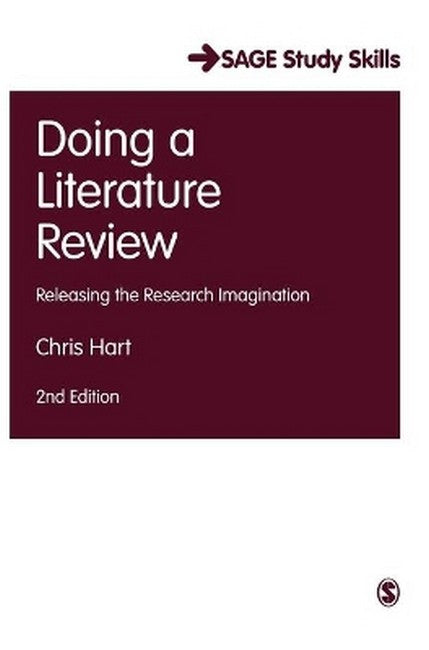Chris Hart is Senior Lecturer in Management and Organizational Studies at the University of Central England, Birmingham.
Request Academic Copy
Please copy the ISBN for submitting review copy form
Description
The research imagination The purpose of literature reviewing Classifying and reading research to review Different types of literature review Argumentation analysis Evidence, evaluation and critical realism Understanding and analysing the ways ideas are organised Mapping and analysing ideas Writing the review
"The literature review is no longer a brief preliminary to the real business of doing social research. There is no topic which has not been studied previously in some form and by some means. Research synthesis and secondary analysis have moved to the core of social inquiry. Hart's text provides clear and authoritative guidance on how to anchor a study." -- Raymond Pawson "Chris Hart has yet again written a brilliant 'hands-on' book offering a unique approach to combining theory, concepts and practical applications that push the reader's critical and creative thought boundaries to reach new scholarly heights. No matter your discipline, this is a must-have book." -- Adela McMurray In the latter half of this 2nd edition, there is an introduction of techniques such as Rapid Evidence Assessment. In healthcare, in particular, the reader/researcher may use this technique to evaluate the application of policy into clinical practice. [...] This edition is a brilliant contribution to the researcher's toolkit. The author takes great care to build up the reader's understanding of literature review by providing easy to follow steps in the early chapters. -- Brian Smith * Association of Perioperative Practice * Hart has produced a resource that emphasises literature review as an ongoing multifaceted process rather than an end unto itself -- Russell Turk * The Cognitive Psychology Bulletin, Spring 2019 * It doesn't take long to find out that this publication has had influence in the social sciences judging by its 3,157 citations according to Google scholar. I originally decided to read this book whilst planning to conduct a review on the subject of wellbeing. And more recently I found it useful when I wanted to design a list of criteria to judge the quality of a rapid review.? [...] I would also highly recommend it to those academically trained professionals who are looking for inspiration on how to synthesize literature differently and build an argument. -- Dr Asimina Vergou, * SRA Research Matters *

